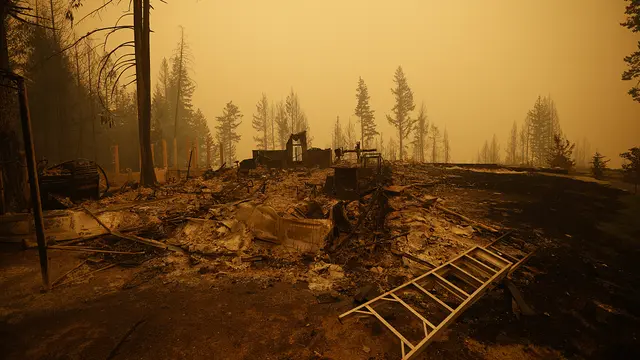Canada is sending armed forces to tackle fast-spreading wildfires in British Columbia, Prime Minister Justin Trudeau said on Sunday, as the western province deals with flames that have put more than 35,000 people under evacuation order.
British Columbia declared a state of emergency and imposed a ban on non-essential travel to free up accommodations for evacuees and firefighters, and urged drone operators and others capturing images of the fires to stay clear of the rescue workers.
West Kelowna Fire Chief Jason Brolund said he saw some hope after battling "epic" fires for the past four days. He said conditions have improved, helping firefighters to put "boots on the ground" and dump water to douse the flames that threatened the town of 150,000.
"Things are looking better. We are finally feeling like we are moving forward rather than moving backwards, and that's a great feeling..." Brolund told the Canadian Broadcasting Corp. However, he warned of difficult days ahead to contain the McDougall Creek fire.
Forest fires are not uncommon in Canada but the spread of blazes and disruptions underscore the severity of its worst wildfire season yet, which some experts have blamed on climate change.
Other blazes, exacerbated by severe drought, have been reported closer to the U.S. border and in the U.S. Pacific Northwest.
Just across the border in Washington state, firefighters battled two major blazes, the Gray Fire and the Oregon Road Fire, which combined had blackened more than 8,000 hectares of forest land and destroyed more than 100 structures.
In Canada, government officials urged residents living in evacuation order zones to leave immediately to save their lives and prevent firefighters dying trying to save them.
The fires have drained local resources and drawn in federal government assistance as well as support from 13 countries. At least four firefighters have died in the line of duty.
About 140,000 square km of land, roughly the size of New York state, have already been scorched nationwide, with smoky haze extending as far as the U.S. East Coast. Government officials project that the fire season could stretch into autumn due to widespread drought-like conditions.
(CGTN)
 简体中文
简体中文

